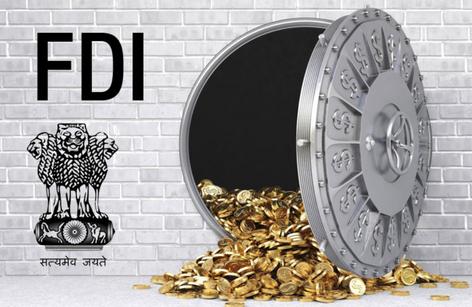
3 minute read
ROAD AHEAD
The healthcare scenario in the country today points towards increasing awareness of diseases and their treatment.
Universal Healthcare The 'Jal Jeevan Mission' (Urban) was launched to achieve universal health was announced in the Union Budget 2021. The mission's goals include universal water delivery to all 4,378 urban local bodies, 2.86 crore residential tap connections, and liquid waste management in 500 AMRUT cities. It will be carried out over five years at the cost of Rs. 2,87,000 crore (US$ 39.41 billion).
Advertisement

Enabling Policies-100% FDI in Hospitals, Private Equity and Venture Capital Investments The government's decision to open its borders to dollar money should reassure investors interested in investing in India's healthcare sector. With a favourable foreign direct investment (FDI) policy for hospitals, we could see foreign investors acquiring majority ownership of our facilities. Under the automated procedure, 100 per cent FDI is currently permitted in hospitals. Soon, this is expected to get much traction in this arena. Recently, private equity funds, generalist asset managers, tech-focused funds, and corporate buyers have expressed interest in this market. Only a few private equity firms had specialised healthcare teams a decade ago, but the situation has changed dramatically, with healthcare investing becoming a viable option.
Ayushman Bharat Ayushman Bharat scheme was designed to offer universal health coverage and financial risk protection for all citizens and provide excellent and inexpensive necessary health care. Over 75,500 Ayushman Bharat-Health and Wellness Centres (AB-HWCs) were functioning in India as of April 2021. The government is also planning to establish 1.5 lakh Ayushman Bharat Health and Wellness Centres by December 2022.
National Nutrition Mission The Union Cabinet approved the National Nutrition Mission (NNM) to monitor, supervise, set targets, and guide nutrition-related interventions across ministries. Every year, the initiative aims to reduce stunting by 2%, undernutrition by 2%, anaemia by 3%, and low birth babies by 2%. Over 100 million individuals are expected to benefit from this programme, implemented across all states and districts.

The government announced intentions to begin 'Mission Poshan 2.0' in the Union Budget 202122, which will unite the 'Supplementary Nutrition Programme' with the 'Poshan Abhiyan' (Nutrition Mission) to enhance nutritional results in 112 aspirational districts.

Technology-led Innovations India Accelerator (IA) has announced its plans to develop a 'Pulse' programme for budding healthtech startups. IA will run a sixteen-week accelerator programme for a group of 5-7 emerging start-ups in this industry. The initiative's goal is to use start-ups to accelerate innovation and change Indian healthcare.
A shift towards Generic Medicines The recent trend of healthcare providers switching to generic pharmaceuticals is quite encouraging for local pharmaceutical businesses and patients, who are anticipated to benefit from the more significant cost-effectiveness. Indian pharmaceutical companies have repeatedly demonstrated their ability to provide low-cost generic medications that help patients make treatment more feasible.

Vision 2035: Move towards Public Health Surveillance in India To increase action preparedness at all levels by making India's public health surveillance system more flexible and predictive. A citizen-friendly public health surveillance system supported by a consumer feedback procedure would ensure individual privacy and confidentiality. To strengthen the data-sharing mechanism between the Center and the states for effective disease control. India aspires to be a regional and international leader in managing global events that pose a public health threat.
Government Commitment to increase GDP Spending The government aims to increase its spending in the healthcare sector to 3 % of GDP by 2022. On the back of increasing income level, health awareness, a disease occurring due to lifestyle will be a critical factor in the expected size of the Indian healthcare sector to the US $372 Billion by 2022.



